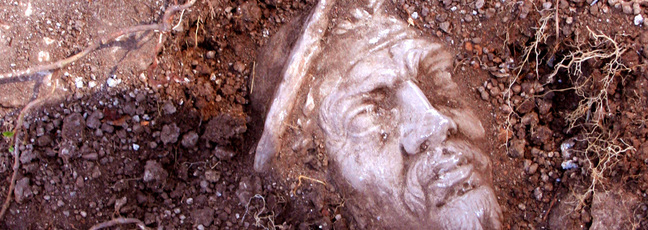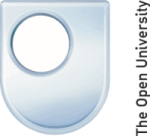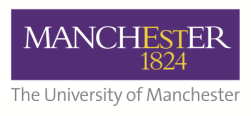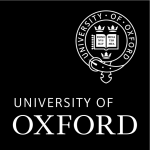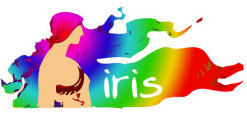Digital Pedagogy
How are new technologies transforming the interface between research and learning?
Hestia2 seminar @Senate House, room 246 (6th floor), 6 June 2014
Funded by the AHRC, Hestia2 has been exploring some of the consequences of applying digital technologies to humanities text-based research, including investigating the use of network theory (Southampton), complex data visualisations (Stanford), and Literary GIS (Birmingham). In this final seminar, we consider the extent to which digital technologies are transforming knowledge of research beyond academia, what the particular challenges and opportunities are for digital-based teaching, and what consequences there may be for research practice.
The seminar is FREE to all, refreshments will be provided, but places are limited. If you would like to participate, please sign up here:
Programme
10.00-10.20 – Arrival and registration
10.20-10.30 – Welcome and introduction
10.30 – 12.45 – Session 1: Community Building and Public Engagement
10.30-10.50 – Graeme Earl (University of Southampton) First thoughts from the Portus MOOC
10.50-11.10 – Yiva Berglund Prytz (University of Oxford) The benefit of the crowd. Community collections for engagement
11.10-11.30 – James O’Donnell Ancient Lives, Old Weather and Operation War Diary: citizen science and text archives
11.30-11.45 – Discussion
< coffee / tea break >
11.50-12.10 – Leon Wainwright (The Open University) The Open Arts Journal: a digital, open access publication
12.10-12-30 – Andy Ellis (Public Catalogue Foundation) Your Paintings: Public engagement in the UK’s online gallery of the nation’s oil painting collection.
12.30-12.45 – Discussion
< lunch >
13.30 – 16.00 – Session 2: Technologies and Methods
13.30-13.50 – Gabriel Bodard (KCL) and Simon Mahony (UCL) Open Educational Resources and the Digital Classicist community
13.50-14.10 – Anne Adams (The Open University) Muddling cultures
14.10-14.30 – Rebecca Ferguson (The Open University) Augmented learning
14.30-14.45 – Discussion
< coffee / tea break >
15.00-15.20 – Tony Hirst (The Open University) From storymaps to notebooks: do your computing a bit at a time
15.20-15.40 – Mair Lloyd and James Robson (The Open University) eLearning and ancient languages: pedagogy, challenges and app-ortunities
15.40-16.00 – Discussion, Wrap up
Anne ADAMS (The Open University) Muddling Cultures Digital engagement has changed our approaches to connecting academia with publics and even creating those publics. What are the tensions that occur through these processes, How can we support research connecting with communities and pedagogies that enable open education. We present some recent research on muddling cultures in academia and how these impact upon a recent large scale EU schools based project.
Gabriel BODARD (KCL) and Simon MAHONY (UCL) Open Educational Resources and the Digital Classicist community Simon Mahony will outline the development and uptake of Open Educational Resources as teaching support for Classics and how this differs from other humanities disciplines; building communities of users and contributors to ensure sustainability and to develop standards of best practice. Gabriel Bodard will introduce the Digital Classicist community and some of its activities from the perspective of communication with scholars and other stakeholders outside of the classics (Knowledge Exchange) and the wider society (Public Engagement), giving a brief example of how one massively collaborative project grew out of this community.
Graeme EARL (University of Southampton) First thoughts from the Portus MOOC The Archaeology of Portus course began on Monday May 19th. This paper will provide some initial thoughts on the development and implementation processes, and on the learning experience evidences through comments and other social contributions. Hestia2 delegates are invited to register to gain an overview of the course before the talk. https://www.futurelearn.com/courses/portus/ and/or use #UoSFLPortus and visit our blog.
Andy ELLIS (Public Catalogue Foundation) Your Paintings: Public engagement in the UK’s online gallery of the nation’s oil painting collection Andrew Ellis, Director of the PCF, will describe the Your Paintings project and the role that the public has played in this ambitious project to digitise and display online the nation’s entire collection of oil paintings in public ownership.
Rebecca FERGUSON (The Open University) Augmented learning This presentation will address how people are using electronic devices in the Humanities to extend learners’ interaction with, and perception of, their current environment to include and bring to life different times, places, characters and possibilities.
Tony HIRST (The Open University) From storymaps to notebooks: do your computing a bit at a time In this presentation I will review various ways in which we can engage with linear narratives for both explanatory and exploratory/investigative purposes. In the first case, storymaps can be used to visualise a linear explanation of the connections and relations between a set of geotemporally distributed events. In the second case, interactive computational notebooks provide a powerful way of constructing and interacting with digital resources in a process that might be described as having “a conversation with data”.
Mair LLOYD and James ROBSON (The Open University) eLearning and ancient languages: pedagogy, challenges and app-ortunities This presentation will focus on the opportunities (or apportunities) and challenges presented by the use of technology to support ancient language teaching and learning, and at how research can help to inspire and evaluate progress. It will include lessons learned at the Open University as well as input from the wider UK university Classics community.
James O’DONNELL Ancient Lives, Old Weather and Operation War Diary: citizen science and text archives Citizen science projects, such as Galaxy Zoo, have been tremendously effective at involving volunteers in scientific research. A similar approach can be effective in opening up large archives of text documents to study by a community of committed volunteers.
Yiva Berglund PRYTZ (University of Oxford) The benefit of the crowd. Community collections for engagement The Education Enhancement team at the University of Oxford is working on a number of initiatives where communities, including the general public, are involved in creating digital resources for research and teaching. This presentation will illustrate the model used and discuss how the work can engage and benefit participants within and outside academia.
Leon WAINWRIGHT (The Open University) The Open Arts Journal: a digital, open access publication This presentation will outline the background to the establishment of the Open Arts Journal, a digital, open access publication with a primary base in the Department of Art History at the Open University. Launched in 2013 and appearing twice annually, the journal offers a robust response to the challenges and opportunities of open access publishing and involves diverse disciplines and stakeholders within and beyond academia (including cultural practitioners, policy-makers and museum and exhibition curators), with funding from UK and European research councils and charitable trusts.
